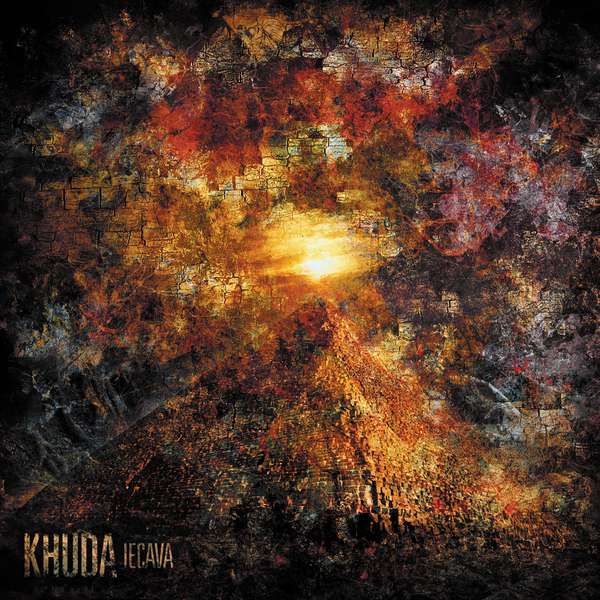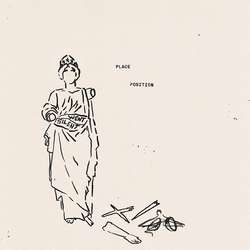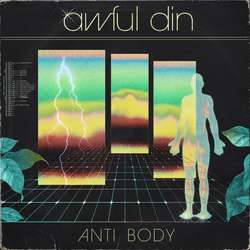Khuda are extremely good at making me feel uncomfortable in new and interesting ways. For only two people, Tom Brooke and Steve Myles have done a lot to take the standard post-metal formula and twist some new life into it. And though the result is a bit confusing at first, it's certainly an interesting and rewarding listen.
The first thing that becomes apparent is the sparseness of the music. While the twain certainly pack a whole lot of music in for a two-person outfit, the amount of space in the music is still immediately noticeable. The sound consists almost entirely of high-end guitars and percussion, and while there are lower parts in the mix, they take on an almost negligible role. This becomes extremely apparent in the band's dynamics, especially on the forte end. Their climaxing crescendos come off as strained and unpleasing rather than emotional and cathartic. This is a pretty big hurdle when playing in a genre where dynamicism is one of the most prominent features. It's not that it sounds bad—it merely gives the music an unsettling, almost ethereal quality.
Compounding this sense of uneasiness are the unusual arrangements. While Khuda have scaled back the length of their pieces since 2010's Palingenesia, this newfound compactness doesn't mean the music is any less confusing. The pair are still throwing around sudden tempo changes and playing through unusual time signatures like it's no one's business. And while they do so with extreme competence, the constant reframing of their music only serves to augment the initial sense of wariness this album presents.
To point at something solid, the percussion half of Khuda has always been an unexpected delight. While I'm not a fan of how the drums are mixed (the snare sounds extremely open and tinny, almost like a neglected tom), Steve Myles plays with an aggressive casualness that sounds extremely fluid and natural. His style of playing is busy yet confident, providing a stunning antithesis to the frequently scaled-back and minimalist guitar work of Tom Brooke. That isn't to say Brooke can't shred with the best of them when the piece calls for it; his guitar work can be as psychedelic as if it were 1969. But often he chooses to forgo elaborate guitar lines when a simpler one will suffice, and that constant tension between the frantic drumming and the restrained guitar lines gives the music a severe case of sonic schizophrenia.
After listening to it a few times, the real merit this music is hiding can shine forth. Though Khuda have always been extremely good at creating interesting musical ideas, it is only on Iecava where the music finally reflects that. One thing they've learned since Palingenesia is how to write music that doesn't sound merely like musical ideas strung together without purpose. By sensibly compacting their writing, the pieces finally feel like legitimate songs, and not collections of unrelated ideas.
All in all, there are a lot of good things to be said about Khuda's latest effort. While there is still certainly room for them to grow, there is no doubt in my mind that this band will bring some more great albums to the table.




